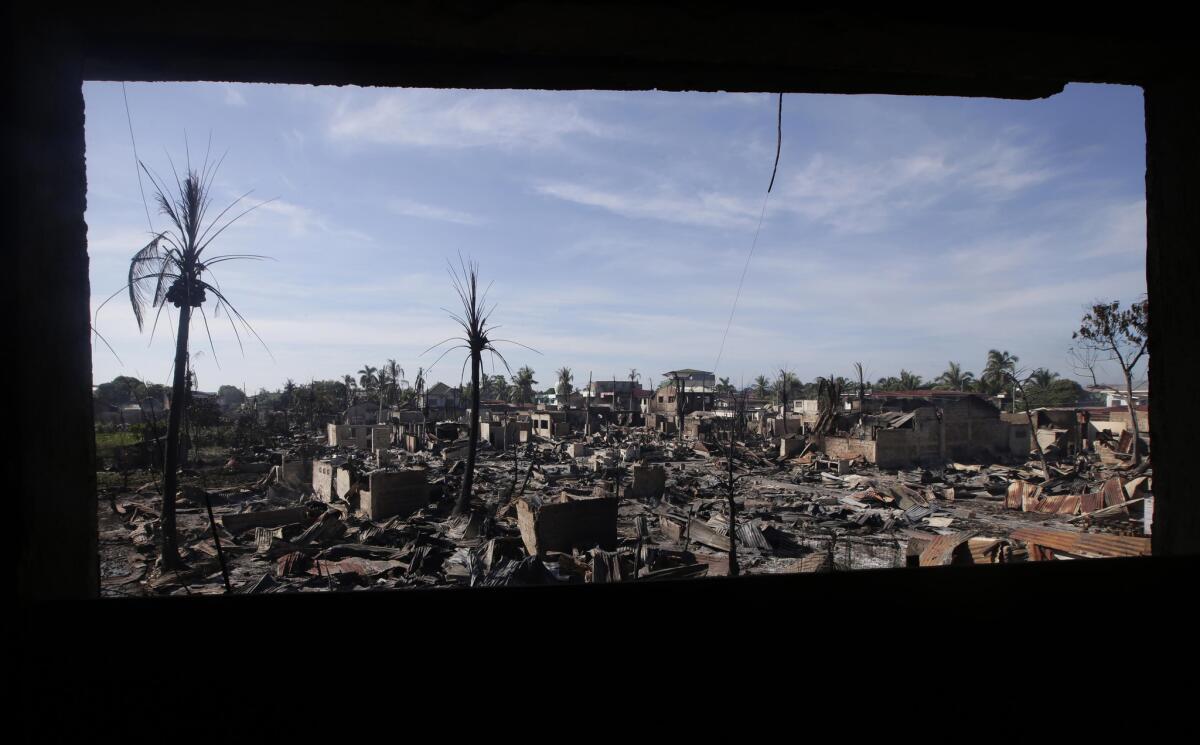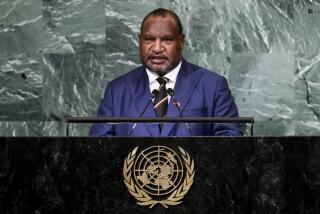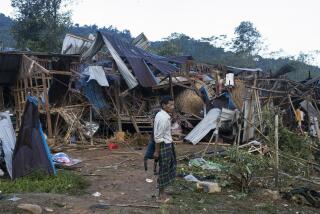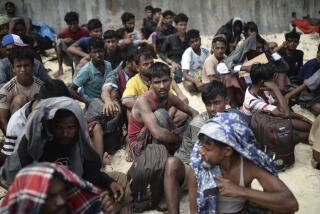Philippine Muslim rebels agree to cease-fire, still hold hostages

Philippine Muslim rebels who have laid siege to the port city of Zamboanga for six days agreed to a cease-fire Friday to allow negotiations with the government but continued to hold more than 100 hostages, local media reported early Saturday.
Sporadic fighting has killed at least 22 people, including 15 insurgents, and forced the evacuation of more than 20,000 people from the key transport and shipping hub at the southwestern tip of Mindanao Island, the Philippine Star reported.
Militants with the Moro National Liberation Front came ashore Monday from the Sulu Archipelago, the islands stretching west to Brunei and Borneo. Muslim rebels have engaged in clashes with government forces for more than 40 years in a campaign to secure an autonomous stronghold for their religious minority.
Philippines President Benigno Aquino III on Friday visited government troops and wounded citizens in Zamboanga, and issued a warning to the rebels still hunkered down with an estimated 170 hostages that force would be used to end the standoff if necessary, the Mindanao Examiner reported.
“While the government is exhausting all avenues for a peaceful resolution to the situation, let it be clear to those defying us that they should not entertain the illusion that the state will hesitate to use its forces to protect our people,” Aquino said, according to presidential spokesman Edwin Lacierda.
Vice President Jejomar Binay announced the cease-fire late Friday after the rebel front’s leader, Nur Misuari, agreed in a phone call with Defense Secretary Voltaire Gazmin to a pause in hostilities so that the two sides could negotiate a peaceful resolution.
Earlier in the day, rebel attacks spread to Basilan island, just south of Zamboanga, despite what the Philippine army said Wednesday was a secure military cordon surrounding the insurgents.
Father Michael Ufana, a Catholic priest held hostage by the rebels since Monday, was freed Friday to deliver the insurgents’ demands for ending the siege. One condition, said the Examiner, was that the government ensure safe passage of the rebels out of Zamboanga.
The front was founded by Libyan exile Misuari in 1971 and has waged attacks to press for an autonomous Muslim area within the predominately Catholic country. At least 120,000 people have died during the four decades of insurgency.
A truce was signed between the front and the government in 1996, but the rebels accuse Manila of having failed to deliver on the guarantees of development aid and more equitable sharing of the mineral bounty of the region.
The front’s latest violent outburst was thought to have been spurred by resentment of a government wealth-sharing agreement signed last year with a splinter group of Muslim rebels, the Moro Islamic Liberation Front.
The Philippines’ Moro Nation, as Muslims are called in the islands, comprises about 5% of the country’s 106 million people, according to the CIA World Fact Book. About 83% of the population is Catholic and 10% other Christian faiths.
ALSO:Iran announces deep cut in enriched uranium stockpile
U.N. report likely to show chemical weapons use in Syria, Ban says
India gang rape: Protesters demand speedy executions for 4 sentenced
Twitter: @cjwilliamslat
More to Read
Start your day right
Sign up for Essential California for news, features and recommendations from the L.A. Times and beyond in your inbox six days a week.
You may occasionally receive promotional content from the Los Angeles Times.







